- Arakan Army’s handover of 73 Bangladeshi fishermen signals potential boost in border cooperation
- Myanmar military officers accused of profiting from dismantled homes in Sittwe villages
- DMG Editorial: A Parliament Without the People Cannot Govern Arakan
- Displaced Arakanese struggle to rebuild homes leveled by junta airstrikes
- India suspends Arakan trade route for two months after death of truck driver in Paletwa
PPST espouses ‘all-inclusive dialogue’ to address current turmoil in Myanmar
All-inclusive dialogue is needed to address the current situation in Myanmar, the Peace Process Steering Team (PPST) told a press conference on April 4, following the latest meeting of PPST leaders.
04 Apr 2022
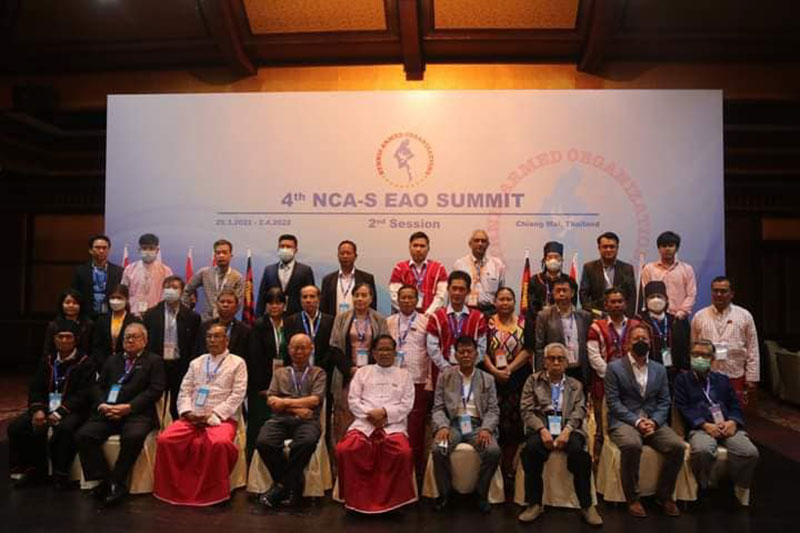
DMG Newsroom
4 April 2022, Sittwe
All-inclusive dialogue is needed to address the current situation in Myanmar, the Peace Process Steering Team (PPST) told a press conference on April 4, following the latest meeting of PPST leaders.
The PPST, a group representing the 10 ethnic armed group signatories to the Nationwide Ceasefire Agreement (NCA), said political parties, ethnic armed groups, civil society organisations, the military junta and all other relevant stakeholders should be involved in the dialogue.
The PPST will work out a political roadmap to involve these groups in the dialogue, Yebaw Myo Win, vice chairman of the All Burma Students’ Democratic Front (ABSDF) and a PPST spokesperson, told reporters at Monday’s press conference.
“Only after consultations will a transition plan be developed,” he said.
A solution to the current political crisis in Myanmar via the junta’s planned 2023 election will be difficult to achieve, he added.
The PPST said it was working on an eight-point political roadmap as a way out of the country’s current turmoil, and would work to involve all stakeholders.
“We will propose a political roadmap to the National Unity Government (NUG), National Unity Consultative Council (NUCC) and all political parties, including our seven political goals,” he said.
“The PPST is working to address the current political crisis in order to find a better way for Myanmar in the future,” said Saw Mra Yarzar Lin of the Arakan Liberation Party (ALP), a fellow member of the PPST.
“Working together in the belief that the current crisis in Myanmar can only be resolved with the participation of all those who deserve to be involved in the talks is extremely beneficial,” she added.
More than a year after the military coup in Myanmar, anti-junta protests continue across the country, with heavy fighting between regime troops and opposition forces including several ethnic armed organisations and the People’s Defence Force (PDF), a network of armed groups formed since the coup and allied with the NUG.
As of April 4, at least 1,728 people had been killed in the crackdown on opposition forces since the coup, according to the Assistance Association for Political Prisoners (AAPP), which also tallied 13,084 people arrested for resisting the regime in the post-coup period.




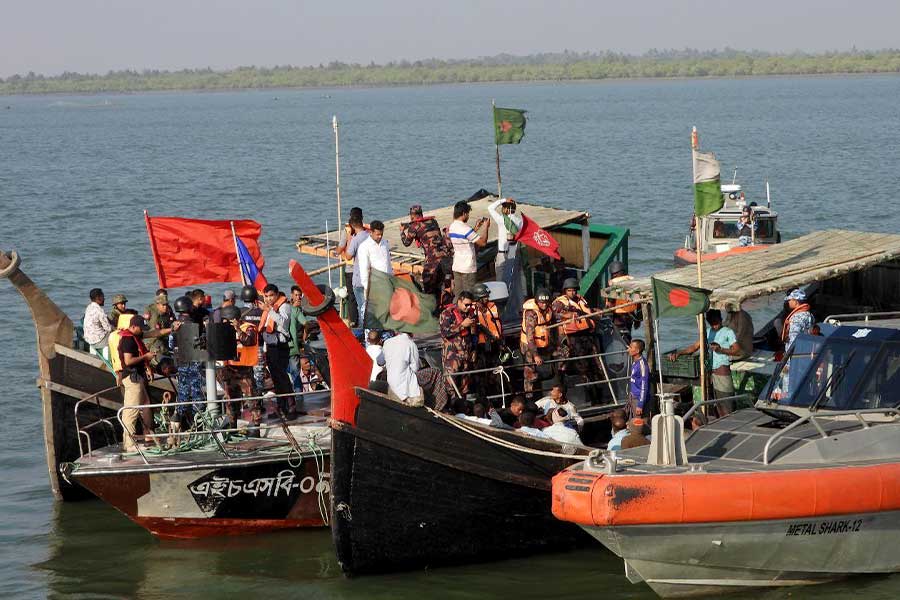
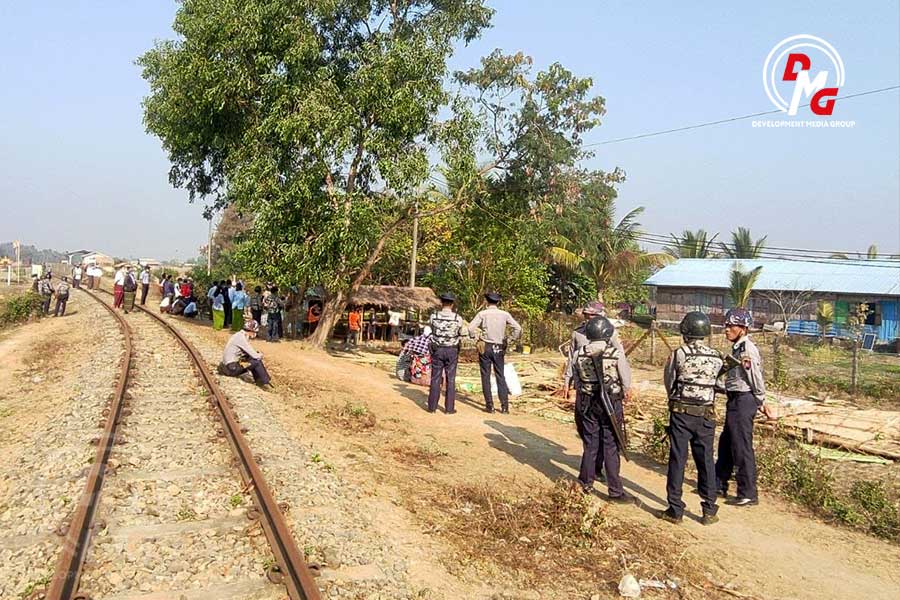
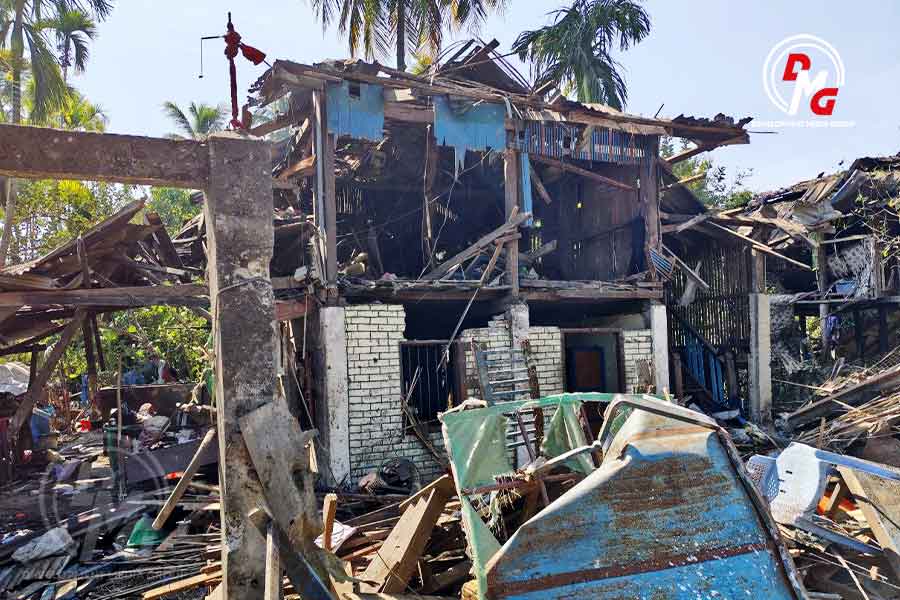
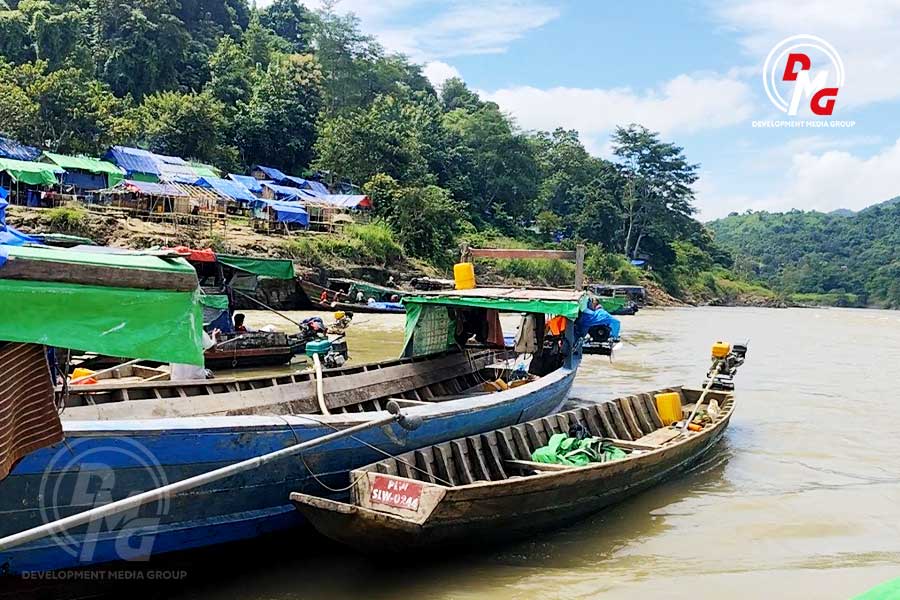
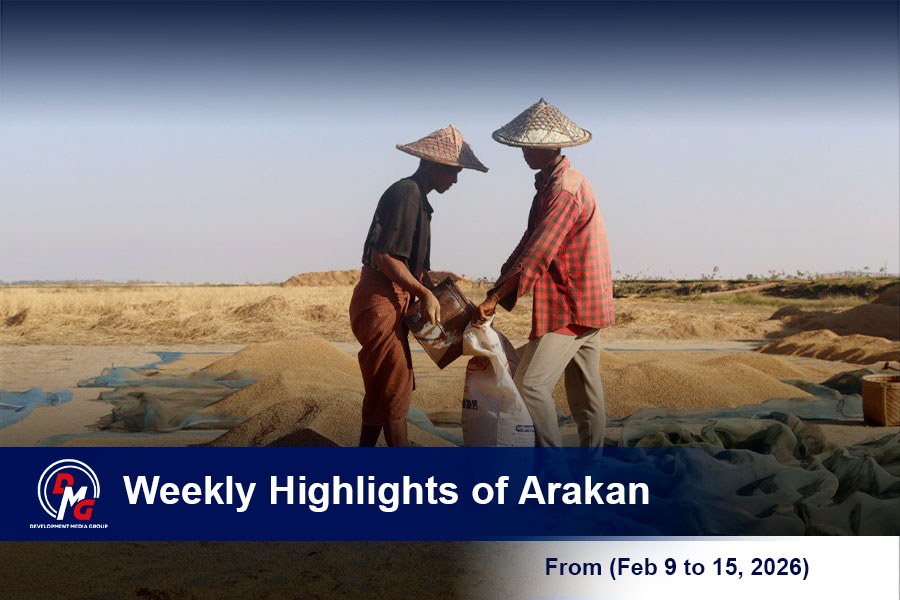







.jpg)
